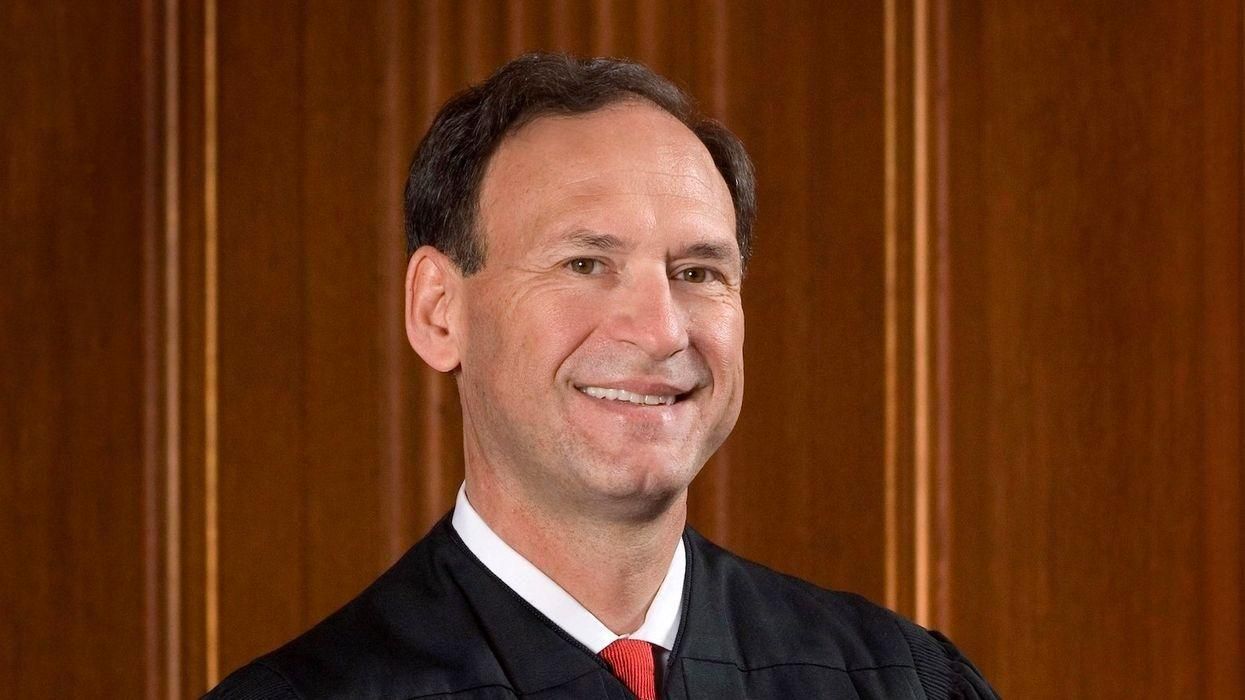This Supreme Court 'sleeper' case could inflict 'enormous damage' on America’s 'most vulnerable'


The case Health and Hospital Corp. of Marion County, Indiana v. Talevski isn’t nearly as well known as Dobbs v. Jackson Women’s Health Organization, which found the U.S. Supreme Court overturning Roe v. Wade after 49 years. But journalist Kate Riga, in an article published by Talking Points Memo on September 2, lays out some reasons why — if the High Court’s right-wing supermajority uses the type of reasoning it used in Dobbs — its Health and Hospital Corp. ruling could “do enormous damage to people who are already often the most vulnerable in our society.”
Riga reports, “There’s a sleeper case on the Supreme Court’s docket that could blow a gaping hole in the social safety net and give states leeway to neglect or end care for tens of millions of the most vulnerable Americans.… And it’s not just Medicaid, though the program enrolling nearly 90 million Americans is the biggest one at risk. This case could leave all of those who depend on federally funded, state-administered programs — think SNAP, formerly known as food stamps, or WIC, which helps low-income pregnant women and mothers with young children buy food — without any recourse, should states stop providing the benefits they’re required to give. The echoes of Dobbs are eerie.”
According to Riga, the Health and Hospital Corp. case “comes from a nursing home run by a municipal corporation owned by Marion County, Indiana.”
READ MORE: The Supreme Court’s illegitimacy is accelerating
“That’s key: while many nursing homes are privately owned, this one is state-run,” Riga explains. “The family of a patient who was suffering from dementia alleges that he was given a slew of unnecessary medications and improperly transferred to different facilities hours away. So, they sued, arguing that his treatment violated the Federal Nursing Home Reform Act, which establishes the rights of residents of nursing homes that receive Medicaid and Medicare funding. But the case, Health and Hospital Corp. of Marion County, Indiana v. Talevski, quickly became much bigger than the allegedly poor treatment of the late Gorgi Talevski.”
Riga continues, “The State of Indiana, sensing an opportunity, tacked on a bigger ask than the initial dispute over nursing home protections. It asked the Supreme Court to reexamine and nix altogether the pathway that people participating in these federal spending programs can use to sue when their rights are violated. If the Supreme Court’s conservative majority bites, experts warn, it could have implications far beyond nursing homes. If a state decided to, say, keep pocketing Medicaid funding but to abruptly stop providing coverage without any due process, those neglected beneficiaries would have recourse. They could sue in federal court under Section 1983.”
The protections of Section 1983, Riga notes, go back to 1871, although they have been “applied to” Medicaid in recent decades. Medicaid and Medicare were established during the 1960s as part of President Lyndon B. Johnson’s Great Society, which was an expansion of President Franklin Delano Roosevelt’s New Deal of the 1930s. The New Deal gave the United States everything from Social Security to a federal minimum age; the Great Society’s achievements ranged from Medicare and Medicaid to food stamps.
Nicole Huberfeld, a professor at Boston University’s School of Public Health, discussed the Health and Hospital Corp. case with Talking Points Memo (TPM) and explained why the protections of Section 1983 are important from a safety net standpoint.
READ MORE: How abortion rights and redistricting are firing up state supreme court races in 2022
Huberfeld told TPM, “The way the state is arguing Talevski is that 1983 rights of action should not be available in any spending program.… Well, that’s our social safety net!”
TPM also interviewed Tim Jost, who teaches at Washington and Lee University School of Law in Lexington, Virginia.
Jost told TPM, “For 50 years now, the Supreme Court has recognized that people can sue under 1983 if their rights are violated under federal law, including spending clause statutes like Medicaid or food stamps. This goes back even beyond Roe…. There’d be very little anyone could do if a red state decided to just stop following the Medicaid statute, and certainly nothing that beneficiaries could do…. This is right up there with Dobbs and the EPA case and the gun case, where the Supreme Court is threatening to take a 180-degree turn and deny people rights that they’ve had for generations.”
According to Sara Rosenbaum of George Washington University’s school of public health, “This case is to Medicaid what Dobbs was to abortion…. This case will essentially determine whether Medicaid continues to exist as an enforceable legal entitlement.”
READ MORE: The Supreme Court is 'smelling blood' and on 'a collision course with democracy itself': journalist